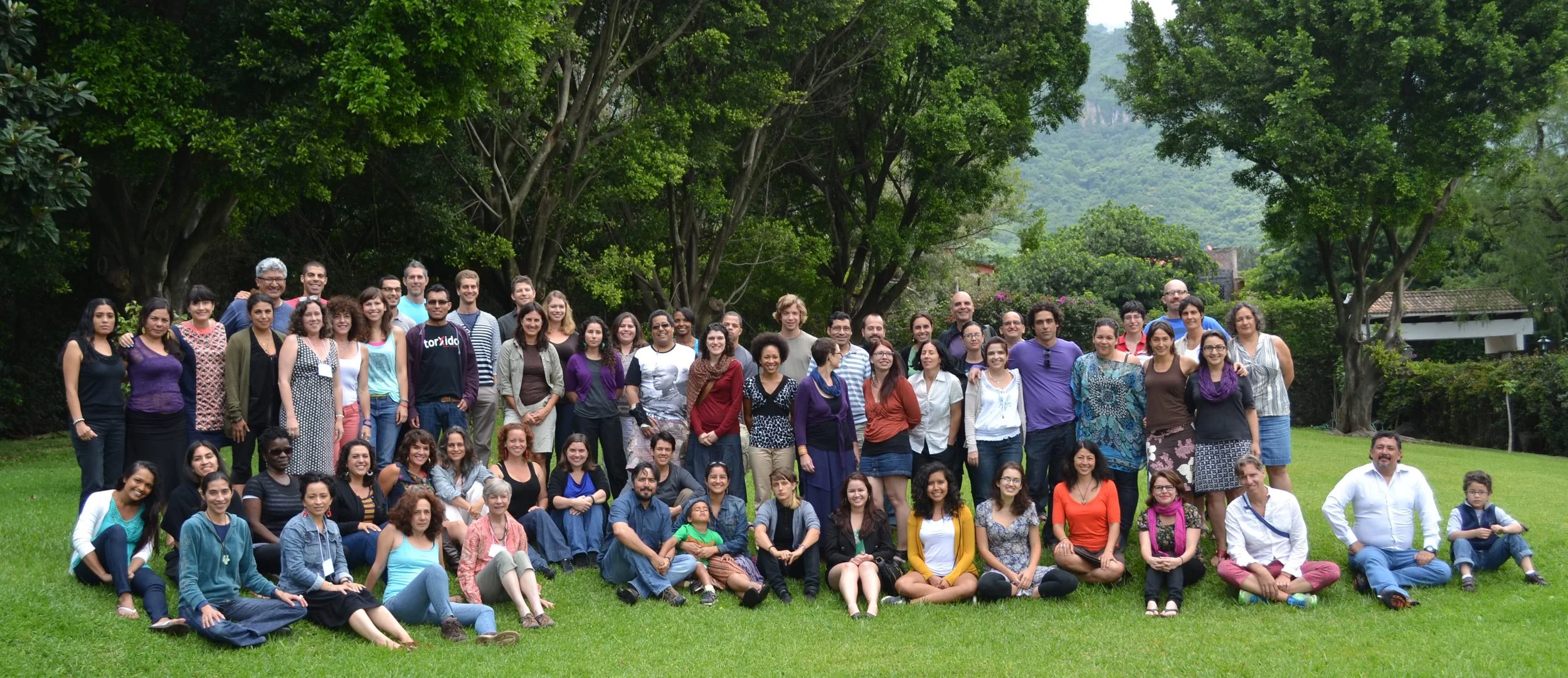Territorialities: Nature, Technologies, and Desire
July 31-August 5, 2012
Territory and territoriality are key questions in the Americas for a range of groups and in a host of different ways. Indigenous movements have long animated the struggle for territory, refusing the split whereby states grant constitutional reforms recognizing indigenous languages and other “cultural” rights while simultaneously accelerating military and corporate encroachment upon lands. In response to these and other incursions, activists have expanded demands for simply territory—land—to territoriality: a robust insistence on the spatial, historical, cultural, and material aspects of landscapes. Further, Latin American Cultural Studies theorizes notions of urban territorialities, border cultures/epistemologies, as well as scholarship’s “locus of enunciation” to consider the emergence of different ways of knowing that link space and identity. There technologies and desires refigure notions of “nature” to resist enclosure and reconceive borders and boundaries. This insistence is likewise the motor for a myriad of movements decrying environmental crises precipitated by transnational resource extraction making questions of territory urgent, as militarized states and private armies dis/re-place not only indigenous people, but figures at the margins of racial, sexual, gendered, national, and all kinds of figurative territories. While “territory” came to be associated with the sovereign nation-state’s claims secured by military force, the concept of territoriality exposes the always transnational constitution of polity, place, and power. Territoriality, then, becomes a tool for charting histories of contestation over the cartographic power to shape embodied spaces. Scholars and activists must continue to map sites of power, building a robust sense of the spatial, historical, cultural and material aspects of territoriality.
Territoriality as a concept opens up a spate of timely topics. We invite participants to consider the multiple intersections of territoriality, nature, technology and desire to respond to these (among other) question regarding whether territoriality:
*points to the cultural and political uses of nature, to nature’s technologies, and to the human technologies developed to exploit nature; does territoriality raise the painful contradiction between the inexhaustible character of capitalist desire and the all-too exhaustible nature of Nature?
*recalls the histories of exploitation and representation that produced raced and gendered bodies (lands, animals, cultures, polities) as the territories of desire, and asks us to wonder what have been the spiritual technologies for extracting and inciting desire?
*summons the forces of nature, which feed the technologies that have turned the biological “nature” of bodies and sexualities into new territory for market inroads?
*invokes geopolitical borders to remind us that the bodily pleasures enjoyed by the few (cheap and plentiful drugs, ready-to-wear trendy fashions, sex-on-demand) are tied to the extractive militarized violence of the nation-state and neo-colonialism, largely the legacies, like coloniality, of former imperialist formations?
*calls attention, as a grounded, spatial concept, to questions of habitus entailed in topographies urban, rural and otherwise, as well as to the borders of scholarship, to transnational method, and to scale?
*tends to the biopolitical, right up to the round of dispossession propelled by “green imperialism” or state-mandated biodiversity?
*mobilizes affect –can territoriality be aggressive, capitalist nationalism, and/or the open desires for stewardship as partnership, and/or the tender, fierce fealty to home?
We invite participants to consider these and other aspects of the fertile concept of territoriality, including the challenges of disciplinary and intellectual-tradition (de)territoriality in scholarly engagement with transnational histories of the Americas, at the Tepoztlán Institute, 2012: Territorialities: Nature, Technologies, and Desire.
